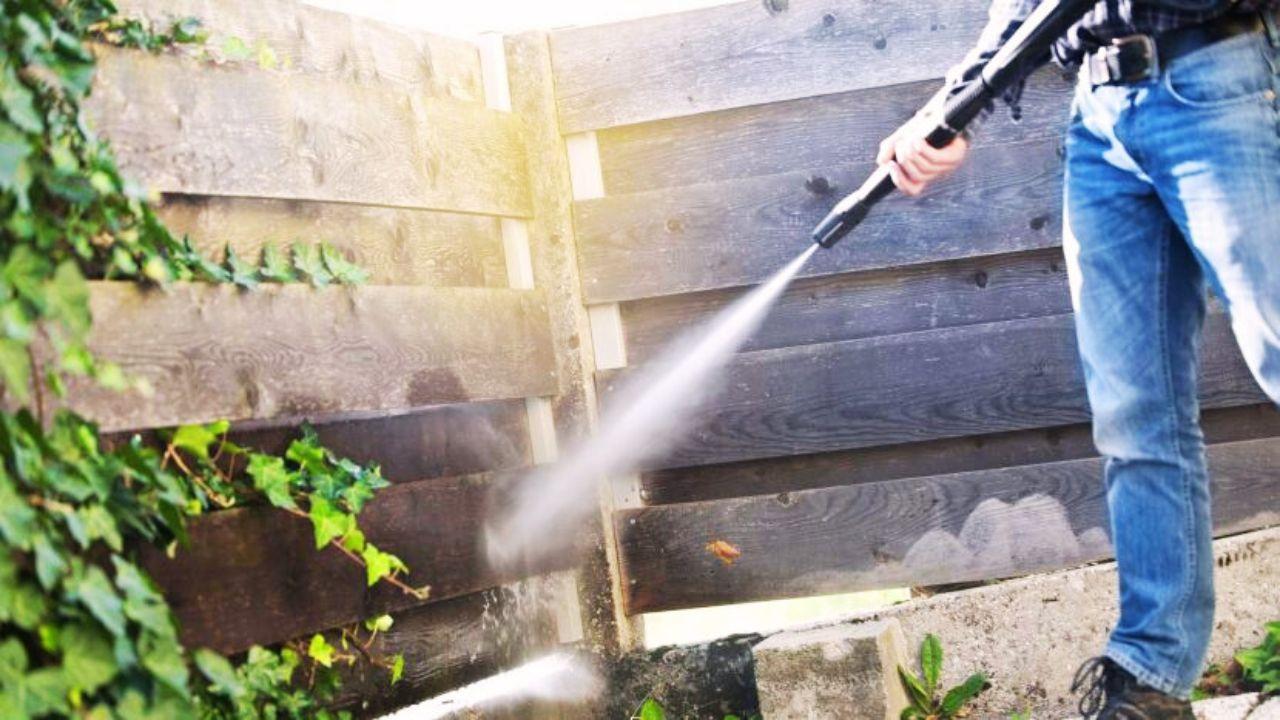Understanding the Science Behind Soft Wash Technology

In the realm of property maintenance, especially for residential buildings exposed to changing weather conditions, the demand for safe, effective, and long-lasting cleaning solutions has never been higher. Homeowners across the country are increasingly turning to house washing service in New Zealand providers who use soft wash technology—a method that combines chemistry and low-pressure water to clean surfaces thoroughly without causing damage.
But what exactly is soft wash technology? How does it differ from traditional pressure washing? More importantly, why is it considered the safer and smarter option for cleaning home exteriors, roofs, and delicate materials?
This comprehensive guide explores the science behind soft washing, its benefits, and why it’s becoming the preferred method for homeowners looking to protect their property while achieving superior cleaning results.
What Is Soft Washing?
Soft washing is a specialized cleaning method that uses low-pressure water (generally under 500 PSI) combined with a mixture of water, surfactants, and biodegradable cleaning agents. The solution is designed to target and break down organic matter like mold, mildew, lichen, algae, and bacteria at a molecular level.
Unlike pressure washing—which relies on force—soft washing uses chemistry and dwell time to kill contaminants and loosen grime. After applying the solution, the surface is gently rinsed to remove the residue, revealing a cleaner, restored exterior.
Soft washing is commonly used by professional house washing service in New Zealand providers for:
-
Exterior walls and cladding
-
Roof shingles and tiles
-
Timber, vinyl, and painted surfaces
-
Gutters, soffits, and fascias
-
Screens, pergolas, and decking
The Science Behind the Method
1. Low Pressure: A Safer Approach
The defining characteristic of soft washing is the use of very low water pressure—just enough to rinse but not enough to strip, gouge, or damage materials. This is especially important for:
-
Older or weathered surfaces
-
Wood, painted finishes, and render
-
Roof shingles and delicate tile
By using less force, soft washing avoids water intrusion behind walls, paint peeling, and surface erosion—common risks associated with high-pressure cleaning.
2. Surfactants: The Molecular Breakthrough
Surfactants (short for surface-active agents) are essential components in the soft wash solution. They work by:
-
Lowering the surface tension between water and contaminants
-
Penetrating porous surfaces to lift embedded grime
-
Breaking the bond between dirt and the surface underneath
Surfactants help the cleaning solution cling to vertical surfaces and work more effectively, reducing runoff and maximizing coverage.
3. Sodium Hypochlorite: The Disinfecting Agent
Most soft wash solutions include a diluted form of sodium hypochlorite—a safe and commonly used disinfectant that is highly effective at killing:
-
Mold and mildew spores
-
Bacteria and viruses
-
Algae and lichen
Sodium hypochlorite breaks down the cellular structure of organic growth, killing it at the root rather than just removing the visible surface layer. This leads to longer-lasting results and slower regrowth compared to pressure washing alone.
4. Dwell Time: The Key to Deep Cleaning
Soft washing depends on the cleaning agents being allowed to dwell on the surface for a specified period—usually between 10 and 30 minutes. This dwell time:
-
Gives the solution time to penetrate deeper layers of buildup
-
Ensures biological contaminants are fully killed
-
Enhances stain removal without requiring abrasive action
After sufficient dwell time, the surface is gently rinsed, leaving it clean, sanitized, and safe for long-term exposure.
Why Soft Washing Is Ideal for New Zealand Homes
New Zealand’s climate includes frequent rain, coastal salt air, UV radiation, and seasonal humidity—all of which create the perfect environment for organic growth and surface degradation.
Soft washing is particularly effective in this setting for several reasons:
Eco-Friendly Solutions for Sensitive Environments
Many New Zealand homes have native plant landscaping, rainwater tanks, and close proximity to waterways. Soft wash chemicals are designed to be:
-
Biodegradable
-
Non-toxic to pets and plants
-
Safe for rainwater collection
Responsible house washing service in New Zealand providers take care to pre-wet plants, redirect runoff, and use dilution practices to prevent harm to the environment.
Effective Algae and Mold Control
Roof algae (Gloeocapsa magma), lichen, and black mold are common on Kiwi homes. These growths can lead to premature aging of roofing materials and discoloration of walls.
Soft washing eliminates these organisms without removing surface material, thereby extending the life of your cladding, roof, or paintwork.
Protection for Weather-Sensitive Materials
Exterior finishes such as cedar, weatherboard, and painted render can degrade quickly if exposed to high pressure. Soft washing cleans these surfaces without rough treatment, preserving their integrity and appearance.
Applications Beyond House Washing
Soft wash technology isn’t limited to house exteriors. It is also used for:
-
Roof cleaning: Removes moss and lichen without damaging tiles
-
Gutter cleaning: Brightens and sanitizes outer gutter surfaces
-
Deck cleaning: Cleans without causing wood splintering
-
Outdoor furniture: Removes buildup from patio sets and screens
-
Fence restoration: Ideal for painted or stained fencing materials
By adapting the solution strength and application method, a skilled team can clean a wide range of surfaces safely.
The Long-Term Benefits of Soft Washing
Extends the Lifespan of Exterior Surfaces
Soft washing prevents deterioration caused by trapped moisture, microbial growth, and repeated abrasive cleaning. This helps delay the need for repainting, re-roofing, or cladding replacement.
Improves Health and Safety
Mold spores and algae can trigger allergic reactions, asthma, and other respiratory problems. By eliminating these at the source, soft washing contributes to better indoor air quality and a safer outdoor environment.
Enhances Property Value and Appearance
A well-maintained exterior boosts curb appeal, resale value, and your pride in homeownership. Soft washing delivers an even, streak-free clean that restores the original finish of your surfaces.
Reduces Maintenance Frequency
Since soft washing kills organisms at the root, surfaces stay clean for longer periods. This reduces the need for frequent touch-ups or follow-up washes.
Choosing a Professional House Washing Service in New Zealand
To benefit fully from soft washing, it’s important to choose a service provider with experience and the right equipment.
Here’s what to look for:
Trained Technicians
Soft washing requires knowledge of chemistry, material compatibility, and safety standards. Professionals are trained to apply the correct mix for each surface and to ensure complete cleaning without overuse.
Fully Insured and Compliant
Work involving chemicals and ladders must comply with New Zealand’s health and safety guidelines. Always ask if the team is insured and trained in safe handling.
Environmentally Conscious Practices
Look for services that use water-saving systems, biodegradable solutions, and protect plant life during cleaning. Many will also offer eco-certification or partnerships with green product suppliers.
Proven Track Record
Check online reviews, before-and-after photos, and customer testimonials. A reliable house washing service in New Zealand will have a history of successful projects and happy clients.
How Often Should You Soft Wash Your Home?
Most homes benefit from a full exterior soft wash once every 12 to 18 months. However, more frequent treatment may be needed in:
-
Coastal regions with salt exposure
-
Shaded areas prone to mold and algae
-
High-pollen environments
-
Homes with older paint or porous surfaces
Regular cleaning not only maintains cleanliness but also extends the time between major repair or repainting jobs.
Conclusion
Soft wash technology represents the next generation of exterior cleaning. It blends science with sustainability, offering homeowners a gentle yet powerful alternative to outdated, high-pressure methods. By relying on carefully formulated solutions, low water pressure, and proper dwell time, soft washing removes dirt, kills organic growth, and protects surfaces without damage.
In New Zealand’s varied climate, where homes are exposed to algae, mold, and the elements year-round, this approach delivers unmatched benefits in longevity, health, and appearance.
Whether you’re restoring a weather-worn exterior or looking for a safe way to maintain your home, a trusted house washing service in New Zealand equipped with soft wash technology is the key to lasting results. Choose professionals who understand the science—and your home will thank you for it.

- Art
- Causes
- Crafts
- Dance
- Drinks
- Film
- Fitness
- Food
- Jogos
- Gardening
- Health
- Início
- Literature
- Music
- Networking
- Outro
- Party
- Religion
- Shopping
- Sports
- Theater
- Wellness


